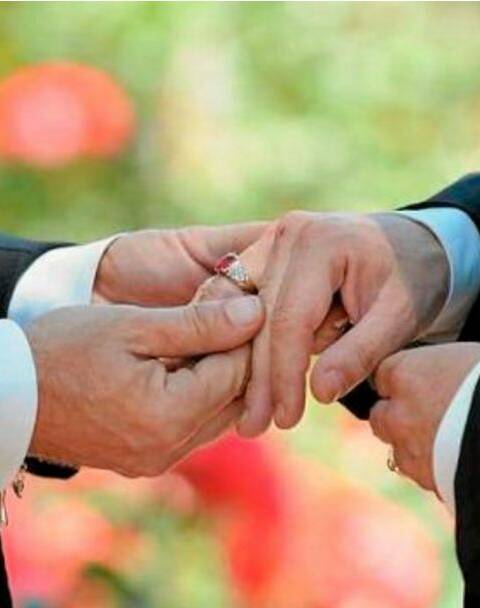
By planning a plebiscite on same-sex marriage the federal government is making a costly decision that would have no legally binding outcome.
Subscribe now for unlimited access.
$0/
(min cost $0)
or signup to continue reading
Prime Minister Malcolm Turnbull is attempting to move ahead with his plans, estimated to cost taxpayers $160 million.
A plebiscite is a vote by citizens on a matter of national significance, but one that does not affect the Constitution. It does not force a government to act on the outcome.
Opponents argue the PM’s plebiscite will be damaging to vulnerable people and pointless because it will not bind members of Parliament. Instead, they favour MPs being given a free vote.
There have been only three national plebiscites in Australia, two unsuccessful.
In 2011, the then-Opposition Leader called for a national plebiscite on a carbon tax, a move prominent constitutional lawyer George Williams said was “understandable as a political tactic”. He said as plebiscites made no changes to the law they were an “expensive opinion poll”.
“Plebiscites are rare in Australia. They go against the grain of a system in which we elect parliamentarians to make decisions on our behalf,” he said.
This debate over same-sex marriage has continued for a long time.
Media agencies across the nation find new angles to cover the issue as it continues to provoke heated response from both sides of the argument, and politicians have delayed legislating by at first refusing to address the issue, and now by attempting a plebiscite.
But, with so much time and energy spent arguing in Australia, are there other issues politicians are not addressing that are slipping by without our knowledge?
It is inevitable if Australia wants to support human rights and keep up with other developed countries around the world that have legalised same-sex marriage – the UK, New Zealand, Norway, France, Canada, South Africa, Sweden, Uruguay, Argentina and some states in the US to name a few.
Gay marriage will affect about 4.1 per cent of men and 2.8 per cent of women in Australia – reported in a study by Roy Morgan Research - who will finally be able to exchange vows, but such a step would go towards supporting human rights and equality in our nation as a whole.
It is only a matter of time before same-sex unions are ratified in Australia. But how long are we going to wait?

